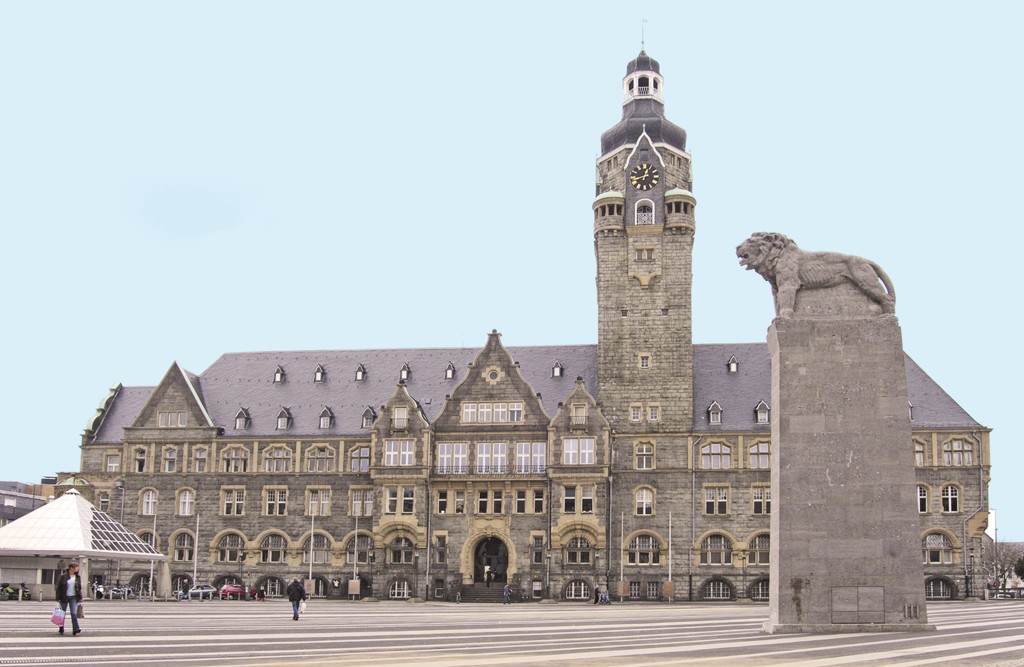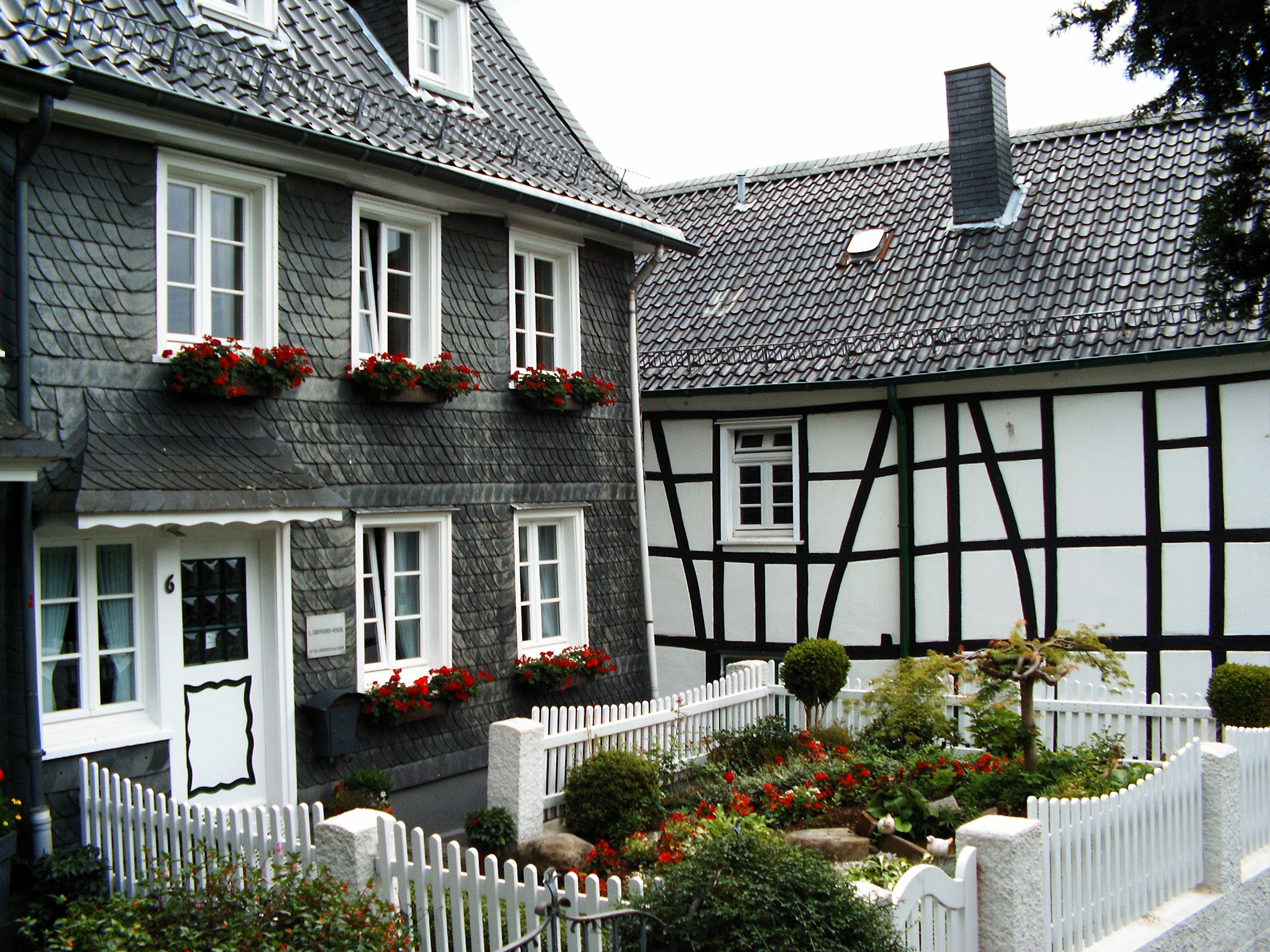|
Polizeipräsidium Wuppertal
image:Wuppertal Friedrich-Engels-Allee 0283.jpg, Polizeipräsidium Wuppertal The Polizeipräsidium Wuppertal (Police Headquarters of Wuppertal) is a part of the North Rhine-Westphalia Police. The jurisdiction spans the cities of Wuppertal, Remscheid and Solingen. Head of authority is Leitender Polizeidirektor Dietmar Henning. Organization The Police headquarters has four subordinate departments: * ''Direktion Gefahrenabwehr'' (uniformed police missions) with 9 police stations in Wuppertal, Remscheid and Solingen, Bereitschaftspolizei and the police dog unit * ''Direktion Kriminalität'' (investigation department) * ''Direktion Verkehr'' (traffic police department) * ''Direktion Zentrale Aufgaben'' (central services department) Building It was built between 1937 and 1939 and used by the local police and the Gestapo since August 1939. After World War II the Allied Military Government used the building as headquarters, and later in 1945 it was also used by the Stadtrat (city council ... [...More Info...] [...Related Items...] OR: [Wikipedia] [Google] [Baidu] |
Wuppertal Friedrich-Engels-Allee 0283
Wuppertal (; "''Wupper dale (landform), Dale''") is, with a population of approximately 355,000, the seventh-largest city in North Rhine-Westphalia as well as the List of cities in Germany by population, 17th-largest city of Germany. It was founded in 1929 by the merger of the cities and towns of Elberfeld, Barmen, Ronsdorf, Cronenberg, Wuppertal, Cronenberg and Vohwinkel, and was initially "Barmen-Elberfeld" before adopting its present name in 1930. It is regarded as the capital and largest city of the Bergisches Land (historically this was Düsseldorf). The city straddles the densely populated banks of the River Wupper, a tributary of the Rhine called ''Wipper'' in its upper course. Wuppertal is located between the Ruhr (Essen) to the north, Düsseldorf to the west, and Cologne to the southwest, and over time has grown together with Solingen, Remscheid and Hagen. The stretching of the city in a long band along the narrow Wupper Valley leads to a spatial impression of ... [...More Info...] [...Related Items...] OR: [Wikipedia] [Google] [Baidu] |
North Rhine-Westphalia Police
The North Rhine-Westphalia (NRW) State Police Force is the largest of the sixteen German state police forces with 50,000 personnel. Organisation Constabularies NRW has 47 police constabularies. The 18 urban constabularies are headed by a President of Police appointed by the NRW state government and the 29 rural constabularies are headed by the county chief administration officer elected for five years by municipal elections. So the chief of police is always a civilian assisted by a senior police officer responsible for law enforcement operations. These authorities are supervised by the State Agency for Central Police Services (LZPD) in Duisburg. State Investigation Bureau The NRW ''Landeskriminalamt'' in Düsseldorf (LKA NRW) is NRW's State Investigation Bureau. Although investigations are principally the responsibility of each regional police force, NRW’s LKA investigates and prosecutes crimes if the Police Organisation Act requires it or if the Interior Ministry, Ministry ... [...More Info...] [...Related Items...] OR: [Wikipedia] [Google] [Baidu] |
Wuppertal
Wuppertal (; "''Wupper Dale''") is, with a population of approximately 355,000, the seventh-largest city in North Rhine-Westphalia as well as the 17th-largest city of Germany. It was founded in 1929 by the merger of the cities and towns of Elberfeld, Barmen, Ronsdorf, Cronenberg and Vohwinkel, and was initially "Barmen-Elberfeld" before adopting its present name in 1930. It is regarded as the capital and largest city of the Bergisches Land (historically this was Düsseldorf). The city straddles the densely populated banks of the River Wupper, a tributary of the Rhine called ''Wipper'' in its upper course. Wuppertal is located between the Ruhr (Essen) to the north, Düsseldorf to the west, and Cologne to the southwest, and over time has grown together with Solingen, Remscheid and Hagen. The stretching of the city in a long band along the narrow Wupper Valley leads to a spatial impression of Wuppertal being larger than it actually is. The city is known for its steep ... [...More Info...] [...Related Items...] OR: [Wikipedia] [Google] [Baidu] |
Remscheid
Remscheid () is a List of cities and towns in Germany, city in North Rhine-Westphalia, Germany. It is, after Wuppertal and Solingen, the third-largest municipality in Bergisches Land, being located on the northern edge of the region, on the south side of the Ruhr area. Remscheid had around 109,000 inhabitants in 2015. At the end of 2019 it had 113,703 inhabitants. Geography Remscheid comprises four boroughs, ''Alt-Remscheid'', ''Remscheid-Süd'', ''Lennep'', and Lüttringhausen. Its highest point is the Brodtberg (378 m). History Remscheid was founded in the 12th century, but remained a small village until the 19th century. Early spellings for the city included ''Remissgeid'' (1217), ''Rymscheyd'' (1351), ''Reymscheyd'' (1487) and ''Rembscheid'' (1639). The economic growth of the entire Rhine-Ruhr region led to an increase of the population of Remscheid. Mechanical engineering and toolmaking were the main industries practised within the town. This is carried on today with the H ... [...More Info...] [...Related Items...] OR: [Wikipedia] [Google] [Baidu] |
Solingen
Solingen (; li, Solich) is a city in North Rhine-Westphalia, Germany. It is located some 25 km east of Düsseldorf along the northern edge of the region called Bergisches Land, south of the Ruhr area, and, with a 2009 population of 161,366, is after Wuppertal the second-largest city in the Bergisches Land. It is a member of the regional authority of the Rhineland. Solingen is called the "City of Blades", since it has long been renowned for the manufacturing of fine swords, knives, scissors and razors made by famous firms such as WKC Stahl- und Metallwarenfabrik, WKC, DOVO Solingen, DOVO, Wüsthof, J. A. Henckels, Zwilling J. A. Henckels, Böker, Güde, Hubertus, Diefenthal, Puma, Clauberg, Eickhorn, Linder, Carl Schmidt Sohn, Dreiturm, Herder, and numerous other manufacturers. In medieval times, the swordsmiths of Solingen designed the town's coat of arms, which continues to the present. In the latter part of the 17th century, a group of swordsmiths from Solingen broke thei ... [...More Info...] [...Related Items...] OR: [Wikipedia] [Google] [Baidu] |
Bereitschaftspolizei
The ''Bereitschaftspolizei'' (literally 'Readiness Police'/On-Call Police (Reserve); effectively riot police) are the support and rapid reaction units of Germany's police forces. They are composed of detachments from the Federal Police and the State Police forces of Germany. Federal Republic The Federal Ministry of the Interior maintains an office of the ''Bereitschaftspolizei'' in Berlin which monitors and coordinates the deployment of all ''Bereitschaftspolizei'' units in Germany. The ministry also provides standardized weapons, vehicles and other equipment. Federal Police The '' Bundespolizei'' maintains 10 rapid reaction battalions (called ''Bundespolizeiabteilung'' or BPA) stationed around the country in Ratzeburg, Uelzen, Blumberg, Bad Düben, Duderstadt, Sankt Augustin, Hünfeld, Bayreuth, Bad Bergzabern and Deggendorf. These units can reinforce the federal police in any sphere of its missions and support the police forces of the ''Länder''. They are also trained to ... [...More Info...] [...Related Items...] OR: [Wikipedia] [Google] [Baidu] |
Gestapo
The (), abbreviated Gestapo (; ), was the official secret police of Nazi Germany and in German-occupied Europe. The force was created by Hermann Göring in 1933 by combining the various political police agencies of Prussia into one organisation. On 20 April 1934, oversight of the Gestapo passed to the head of the ''Schutzstaffel'' (SS), Heinrich Himmler, who was also appointed Chief of German Police by Hitler in 1936. Instead of being exclusively a Prussian state agency, the Gestapo became a national one as a sub-office of the (SiPo; Security Police). From 27 September 1939, it was administered by the Reich Security Main Office (RSHA). It became known as (Dept) 4 of the RSHA and was considered a sister organisation to the (SD; Security Service). During World War II, the Gestapo played a key role in the Holocaust. After the war ended, the Gestapo was declared a criminal organisation by the International Military Tribunal (IMT) at the Nuremberg trials. History After Adol ... [...More Info...] [...Related Items...] OR: [Wikipedia] [Google] [Baidu] |





_cropped.jpg)
